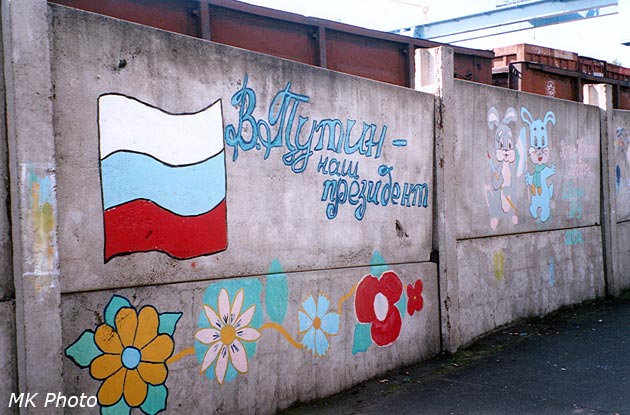Kaznet users suggest equating fences to media.
Representatives of the Internet community of Kazakhstan have recently developed a full-fledged bill on the official equating fences to the media. According to RIA Novosti, in this way they expressed their protest against attempts by the government of Kazakhstan to tighten control over Internet resources, namely, to equate them to the media (the bill on this was passed earlier in the first and second readings by the lower house of parliament).

As the President of the International Foundation for the Protection of Freedom of Speech, Adil Soz, Tamara Kaleyeva, informs, the bill on fences will soon be submitted to parliament. According to her, the document fully defines all the legal framework for the transfer and storage of information on the fences, the direction of the state fence policy, the rights of the readers of the fences, as well as restrictions on the dissemination of information on the fences.
The human rights activist explains: “The purpose of the bill is to show the absurdity of the amendments that were adopted by parliament.”
Let me remind you that in accordance with the amendments to the law on mass media, adopted by deputies of the lower house of parliament, they propose to equate to mass media absolutely all Internet resources, including blogs, forums, online stores and other sites. Thus, they will be subject to all criminal and administrative legislation that regulates the activities of the media. Kaznet users believe that the new rules will in fact become a powerful tool for censorship.
')
If the bill is finally adopted (and it has already been submitted to the upper house of parliament), then law enforcement agencies will have the right to block any Internet resource at any time if they decide that its content does not in some way meet the requirements of the country's legislation.
We can only wish good luck to the protesters in Kazakhstan, because it is not known how quickly the governments of other countries will finally decide to take control of the “Internet” in case Kazakhstan’s experience turns out to be successful.
Based on lenta.ru
Future media in Russia

As the President of the International Foundation for the Protection of Freedom of Speech, Adil Soz, Tamara Kaleyeva, informs, the bill on fences will soon be submitted to parliament. According to her, the document fully defines all the legal framework for the transfer and storage of information on the fences, the direction of the state fence policy, the rights of the readers of the fences, as well as restrictions on the dissemination of information on the fences.
The human rights activist explains: “The purpose of the bill is to show the absurdity of the amendments that were adopted by parliament.”
Let me remind you that in accordance with the amendments to the law on mass media, adopted by deputies of the lower house of parliament, they propose to equate to mass media absolutely all Internet resources, including blogs, forums, online stores and other sites. Thus, they will be subject to all criminal and administrative legislation that regulates the activities of the media. Kaznet users believe that the new rules will in fact become a powerful tool for censorship.
')
If the bill is finally adopted (and it has already been submitted to the upper house of parliament), then law enforcement agencies will have the right to block any Internet resource at any time if they decide that its content does not in some way meet the requirements of the country's legislation.
We can only wish good luck to the protesters in Kazakhstan, because it is not known how quickly the governments of other countries will finally decide to take control of the “Internet” in case Kazakhstan’s experience turns out to be successful.
Based on lenta.ru
Source: https://habr.com/ru/post/59613/
All Articles